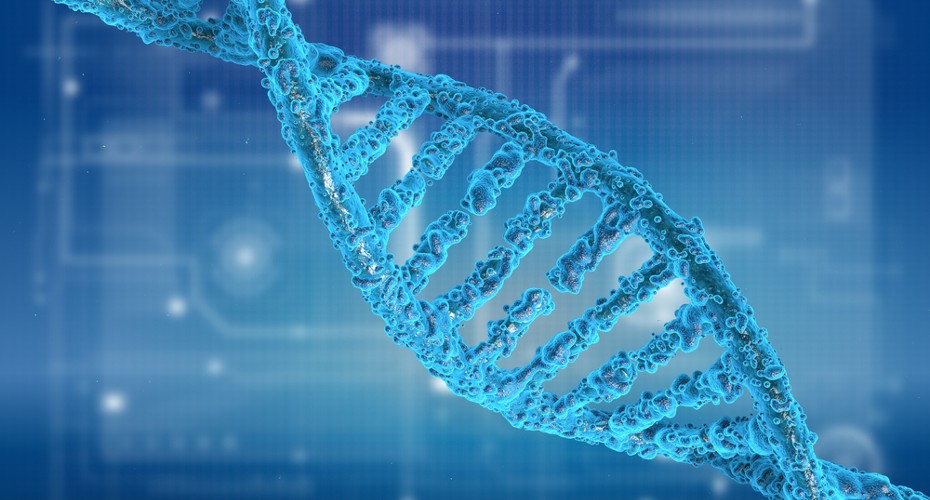Two siblings who share the world’s only known key genetic mutation are helping scientists gain new insights that could help advance the search for new treatments for type 1 diabetes.
Type 1 diabetes (also called autoimmune diabetes) is a devastating, lifelong disease in which a person’s immune cells mistakenly destroy insulin-producing beta cells in the pancreas. People with autoimmune diabetes need to test their blood sugar and inject insulin throughout their lives to control blood sugar and prevent complications.
Autoimmune diabetes with clinical onset in early childhood is rare and may be caused by multiple genetic variants. However, there are many cases of early-onset diabetes with no known genetic explanation. Additionally, some cancer patients treated with a class of immunotherapy called immune checkpoint inhibitors, which target the same pathways in which mutations were discovered, are susceptible to developing autoimmune diabetes. Why only this type of cancer immunotherapy induces autoimmune diabetes is unclear. Like type 1 diabetes, autoimmune diabetes related to genetics or immunotherapy requires lifelong insulin replacement therapy—there is currently no cure.
The new study, published in the Journal of Experimental Medicine, began with researchers studying two siblings who were diagnosed with a rare genetic form of autoimmune diabetes within weeks of birth. The University of Exeter offers free genetic testing globally to babies diagnosed with diabetes before the age of nine months. For most babies, the service provides a genetic diagnosis, and for about half of them, it allows for a change in treatment.
When the researchers tested the two siblings in the study, no mutations with known causes were found. The Exeter team then performed whole-genome sequencing to search for the previously unknown cause of autoimmune diabetes. Through sequencing, they discovered that the siblings had mutations in the gene encoding PD-L1 and realized that this might be the cause of their early-onset autoimmune diabetes.
“PD-L1 has been particularly well studied in animal models because it plays a crucial role in sending stop signals to the immune system and is associated with Relevant for cancer immunotherapy, these siblings provide us with a unique and critically important opportunity to study what happens when this gene is disabled in humans.
The PD-L1 protein is expressed on many different cell types. Its receptor, PD-1, is expressed only on immune cells. When the two proteins bind together, it sends a stop signal to the immune system, preventing collateral damage to body tissues and organs.
Researchers from the Rockefeller Institute in New York and King’s College London teamed up with the University of Exeter to study the siblings, with funding from Wellcome, the Leona M. and Harry B. Helmsley Charitable Trust, Diabetes UK and the National Institute of Health Research. After contacting the family’s clinicians in Morocco, the Exeter team visited the siblings where they lived, collected samples and sent them back to King’s College London for analysis within a critical ten-hour window while immune cells alive. The research team in London and New York then conducted extensive analysis of the siblings’ cells.
“We first showed that this mutation completely disables the function of the PD-L1 protein,” said study co-author Dr. Masato Ogishi of The Rockefeller University in New York. “We then studied the siblings’ immune systems to look for the factors that caused this. Immune abnormalities. “As we have previously described in two other siblings with PD-1 deficiency, both of whom had multi-organ autoimmunity, including autoimmune diabetes and widespread dysregulation of immune cells, we expected to find severe immune abnormalities. Cellular disorders. In many other respects it is dispensable. This concept requires further investigation in the context of artificial blockade of PD-L1 as cancer immunotherapy.
Study co-author Professor Timothy Tree from King’s College London said: “By studying this pair of siblings, which to our knowledge is unique in the world, we found that the PD-L1 gene is crucial for avoiding autoimmune diabetes. , but is not necessary for “daily” immune function, which leaves us with a big question: “What is the role of PD-L1 in our pancreas, making it essential for preventing our immune cells from destroying us?” Are beta cells critical? We know that under certain conditions beta cells express PD-L1. However, certain types of immune cells in the pancreas also express PD-L1. We now need to figure out what the different cell types are. “Communication” between the two, which is crucial in preventing autoimmune diabetes.
“This discovery increases our understanding of how autoimmune diabetes, such as type 1 diabetes, develops. It opens up a new potential target for future treatments to prevent diabetes. At the same time, it uniquely provides new insights into the field of cancer immunotherapy. Knowledge. Helps speed up.
Dr Lucy Chambers, director of research communications at Diabetes UK, said: “A pioneering treatment that changes the behavior of the immune system to block its attack on the pancreas is already advancing as a treatment for type 1 diabetes and is awaiting approval in the UK.
“By focusing on the precise role of important players in the immune attack of type 1 diabetes, this exciting discovery may lead to more effective, targeted and transformative therapies for patients with or at risk of type 1 diabetes. Treatment paves the way.
“New drug development often fails because scientific discoveries made in animal models do not translate to humans,” said Ben Williams, program officer at Helmsley. “There is therefore a strong preference among drug developers to develop human genetic evidence to support drug targets. New drugs.
/Public Release. Material from the original organization/author may be of a point-in-time nature and has been edited for clarity, style and length. Mirage.News does not adopt an institutional position or position, and all opinions, positions, and conclusions expressed in this article are solely those of the author.
#Unique #genetic #siblings #drive #search #type #diabetes #drug
Image Source : www.miragenews.com
